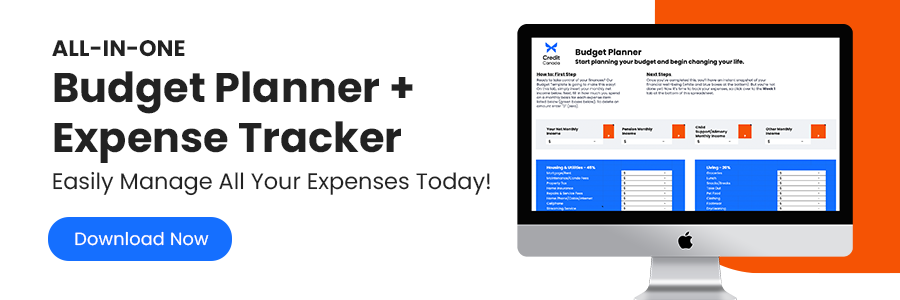
As the Senior Education Facilitator here at Credit Canada, I often speak to groups of Newcomers to Canada on various topics related to personal finances, and one topic that always needs to be covered is credit, and credit-building in a new country. I’ve regularly encountered people who are either uninformed or seriously misinformed on the importance of building credit as a new Canadian.
The Canadian Credit System Can Take Some Time to Learn
We need to start with the observation that immigrants to Canada are often coming from countries where the credit system is quite different from ours. Also, the mere fact of having a credit history or credit score may be far more important in Canada than in newcomers’ home countries, due to the wide range of uses and users of credit histories here.
For example, I’ve often spoken to new arrivals in Canada who were completely mystified by a potential landlord informing them that they needed to “check their credit” before offering them an apartment lease.
Many Newcomers Fear Debt
Furthermore, many newcomers have heard about some Canadians having a lot of debt, and worry that if they start to access credit products, then they also will also be “in debt”, so they avoid credit products altogether, to their detriment.
Some Newcomers aren’t clear on what the credit system is here in Canada and how it works while others seem to establish a good credit history surprisingly quickly.
Newcomers Can Build A Good Credit Score Quickly By Using Credit Wisely
One individual who I met a couple of years ago had immigrated to Canada in the summer of 2019, and by early 2020, less than 6 months after arrival, already had a credit score in the low 700s.
In her case, all she had done was accept the low-limit credit card offered by her bank when she opened her accounts there. Then she made a habit of using the card regularly and paying the balance off in full every month, well before the payment due date.
She did nothing else to build her credit other than that, and in fairly short order, she had developed a credit score that Equifax characterizes as “Good” – and getting close to “Very Good”.
So why aren’t other immigrants to Canada doing the same thing – getting their credit history up to speed shortly after their arrival here? I don’t think I have the perfect answer to this question, but here are some of my thoughts on it.
Why Do Some Newcomers Struggle to Build Good Credit?
I believe that collectively we don’t do a good job of communicating to Newcomers (or young Canadians as well, but don’t get me started on that!) just how important it is to demonstrate that we’re capable of building and maintaining a solid credit history.
I’ve found that many people outside my industry, not just newcomers, are unaware of how widespread the use of credit history has become.
For example, financial organizations (and not just banks, but every kind of lender, too, which includes stores that issue credit cards) cellphone companies, utilities, landlords, and even employers in some industries all do credit checks.
Why Are Credit Scores Important?
Credit scores are used as a proxy measure for determining who to trust as a debtor and who not to trust. So, if your credit score is, for example, below 550, and you’re looking for a new apartment, it wouldn’t be unrealistic for a landlord to reject your application.
Many Newcomers are leery of accessing any credit product until they have established a stable source of income, and – as mentioned earlier – they share a misconception that simply having a credit card will automatically lead to debt and disaster.
But if you fear debt and therefore avoid credit products, it can be extremely difficult to build good credit. And there are very real consequences to not having a favourable credit score, including limited housing options.
Using Credit Does Not Always Lead to Unmanageable Debt
So, what do I say to the Newcomers I meet in my role as Credit Canada’s Senior Education Facilitator? Well, not starting to establish a positive credit history can become a barrier to many things in Canada, as I have indicated previously. However, establishing a credit history and getting into debt problems must not be seen as the same thing.
There are plenty of Newcomers who use credit wisely to build a positive credit history and avoid debt. This includes accepting just one credit card from the banking institution where you keep your other bank accounts; using that card at least once per month – and only once per month is fine! And then make sure to pay the balance off in full before the due date.
I could provide a long explanation of how the credit scoring algorithm works, but you would find that employing the method outlined above would “check all the boxes” necessary to build credit.
How To Use Credit and Avoid Debt
I met this gentleman who was adamant about not wanting to ever be in debt, but he accepted that he needed to build his credit history. So he got a credit card – low-limit – from his bank, and used it for only one thing: he subscribed to Netflix.
Once a month, Netflix bills his credit card, and then he pays off the credit card bill. So his credit score is in the 700s – which is good – and he has no debt, which is where he wants to be. And he has no concerns about using the credit card and getting into trouble because after subscribing to Netflix, he cut the card up (but didn’t close the account, which is important).
Manage Credit Card Debt with Credit Canada
If you ever do run into trouble using credit, you can always reach out to one of our certified credit counsellors for free advice. As a non-profit credit counselling agency, we provide free credit counselling services and debt help.
If credit card bills are keeping you up at night or you would like to build credit as a Newcomer, contact us and book a free counselling session for unbiased, confidential advice.

Frequently Asked Questions
Have a question? We are here to help.
What is a Debt Consolidation Program?
A Debt Consolidation Program (DCP) is an arrangement made between your creditors and a non-profit credit counselling agency. Working with a reputable, non-profit credit counselling agency means a certified Credit Counsellor will negotiate with your creditors on your behalf to drop the interest on your unsecured debts, while also rounding up all your unsecured debts into a single, lower monthly payment. In Canada’s provinces, such as Ontario, these debt payment programs lead to faster debt relief!
Can I enter a Debt Consolidation Program with bad credit?
Yes, you can sign up for a DCP even if you have bad credit. Your credit score will not impact your ability to get debt help through a DCP. Bad credit can, however, impact your ability to get a debt consolidation loan.
Do I have to give up my credit cards in a Debt Consolidation Program?
Will Debt Consolidation hurt my credit score?
Most people entering a DCP already have a low credit score. While a DCP could lower your credit score at first, in the long run, if you keep up with the program and make your monthly payments on time as agreed, your credit score will eventually improve.
Can you get out of a Debt Consolidation Program?
Anyone who signs up for a DCP must sign an agreement; however, it's completely voluntary and any time a client wants to leave the Program they can. Once a client has left the Program, they will have to deal with their creditors and collectors directly, and if their Counsellor negotiated interest relief and lower monthly payments, in most cases, these would no longer be an option for the client.







